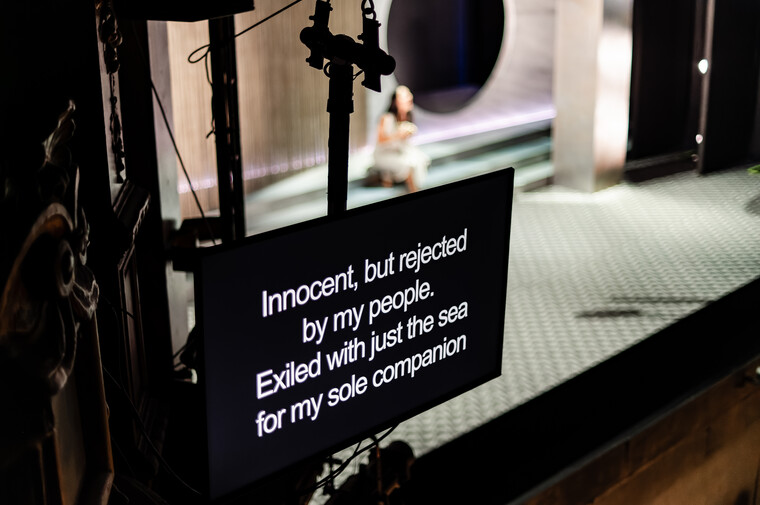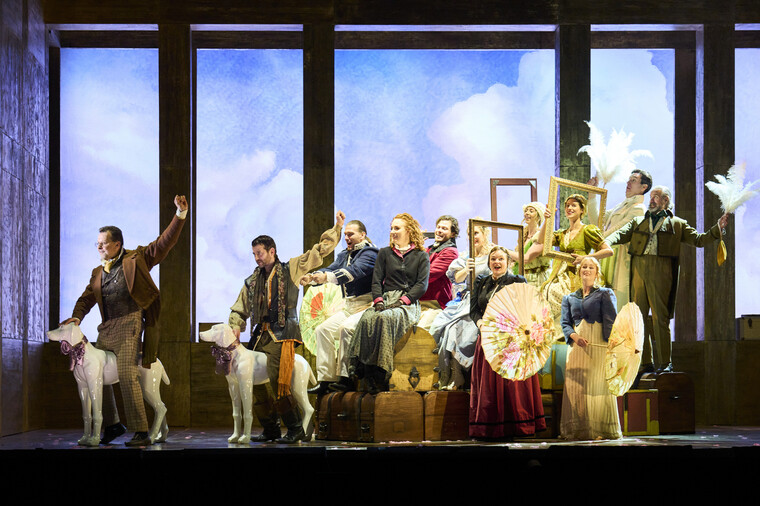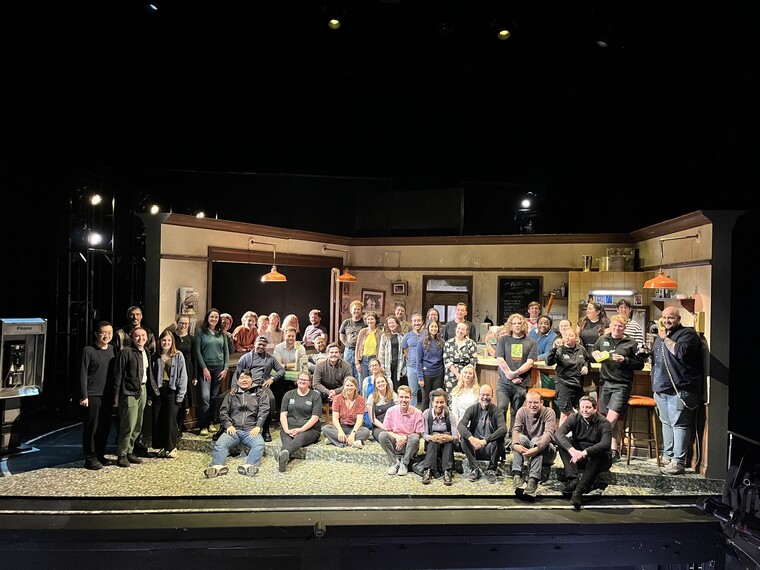Your First Opera
So you've never been to an opera before...
We've all been there. Here's everything you need to know:



Opera celebrates the amazing capabilities of the human voice! All singers perform without microphones, projecting over a live orchestra.
Throughout the performance, singing never stops. Even dialogue pieces like "hello there!" are sung.
Opera is characterised by dramatic themes of passion and intensity, expressing the highest highs and lowest lows of emotion.
How will I understand the opera?

Surtitle screens during The Coronation of Poppea, Autumn 2023
Credit: Julian GuideraAll ETO shows, even those sung in English, feature surtitle screens near the stage. These screens project text of what is being sung so you can better understand the singers and follow along with the plot. The story of the opera isn't only told through text; sets, costumes, and acting will help you connect with the story as well!
How should I show my support for the show?

Il Viaggio a Reims, Spring 2023
Credit: Richard Hubert SmithTo wish an opera cast good luck, swap "break a leg" for the phrase "toi toi toi!" (pronounced toy-toy-toy). When you've been impressed by a performance, show your enthusiasm by clapping at the end of an aria. To express even more support, throw in a "bravo" (well done!) or "encore" (I want to hear it again!)
Vocab!
You might hear some new words in conversation about the opera:
Aria: A piece of music performed by a solo singer accompanied by instruments. Click play to listen!
Some more words to get to know:
Coloratura: Singing with elaborate melodies.
Libretto: The words being sung in an opera.
Overture: At the beginning of an opera, the orchestra plays a piece composed of bits of music that you'll hear throughout the rest of the opera.
Recitative: Words used for dialogue in operas. Usually sung with many words on the same note in a free rhythm that mimics ordinary speech.
Who's who?
From musicians to directors to production crew members, a lot of people come together to bring every opera production to life.

Cast and crew of The Capulets and the Montagues, Spring 2025
You may see some of these faces in your programme:
Conductor: Someone that leads the orchestra and singers during live performances.
Composer: Someone that writes the music of an opera.
Director: Someone that leads the development of an opera production.
Librettist: Someone that writes the text of an opera.
Director: Someone that leads the development of an opera production.